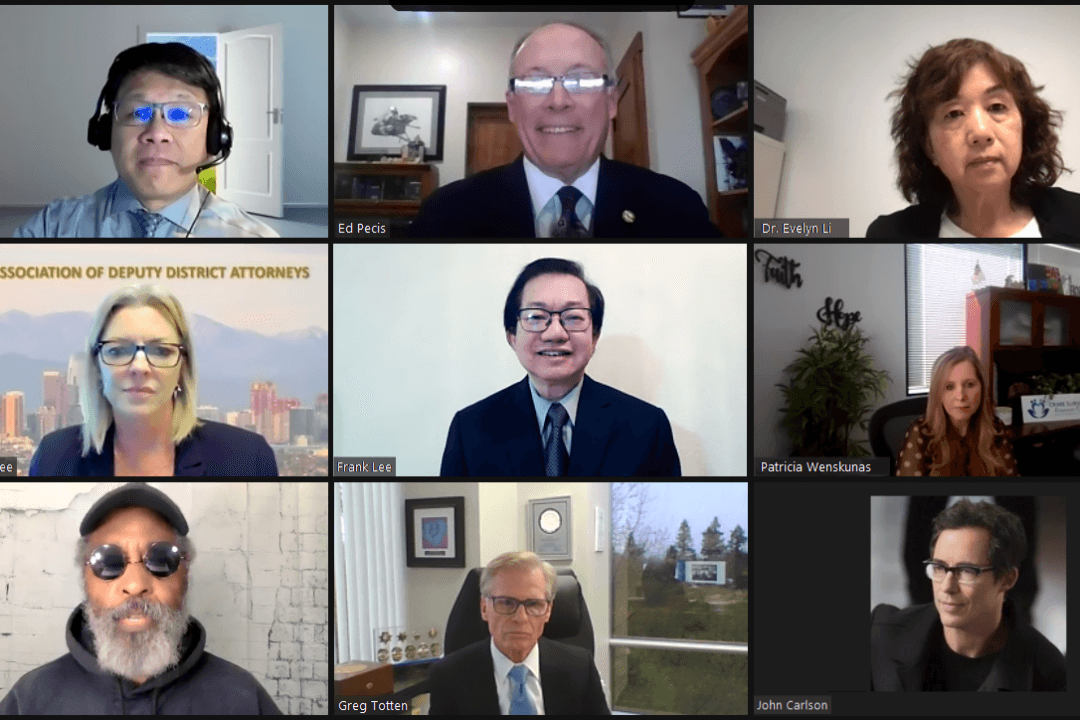Community members denounced California Senate Bill 58, which seeks to legalize psychedelic drugs, in a virtual press conference on March 28.
Opponents said this bill is “the pivotal first step to legalize all drugs.”

Community members denounced California Senate Bill 58, which seeks to legalize psychedelic drugs, in a virtual press conference on March 28.
Opponents said this bill is “the pivotal first step to legalize all drugs.”